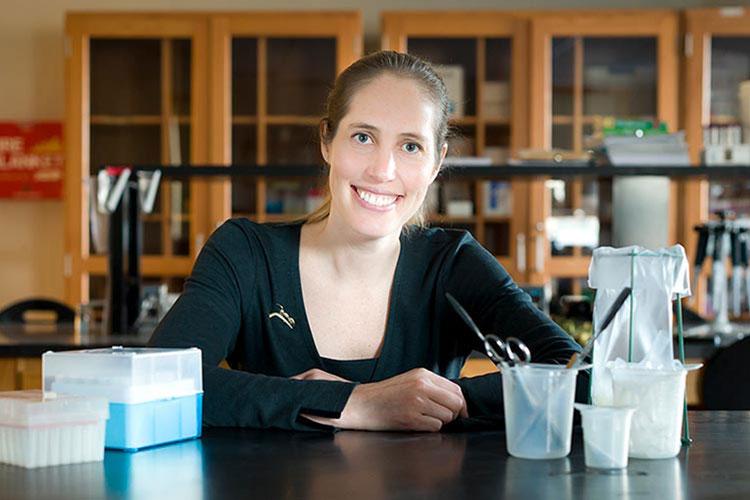New research from Colgate University demonstrates how biologically determined “early birds” are more likely to make risky or unethical decisions in the afternoon, while biologically determined “night owls” often make the same missteps in the morning.
The research, published in the journal Nature (Scientific Reports), titled “Molecular Insights Into Chronotype and Time-of-Day Effects on Decision-Making,” is authored by Colgate biology professors Krista Ingram and Ahmet Ay along with three undergraduate co-authors: Soo Bin Kwon ’16, Molly Gordon ’15, and Angela Escobar ’15.
“It is an interdisciplinary study on how oscillations in our circadian clock genes (and whether we are a morning person or an evening person) affect our ability to make ethical or risky decisions,” said Ingram. “We found that if your clock genes cycle early (morning person), you are more likely to make unethical or risky decisions in the afternoon, while the same can be said about a night owl making unethical decisions in the morning.”
The study included 139 participants, who were split into two groups based on a survey that helps gauge preference for morning or evening hours. Researchers determined the daily RNA profile of circadian clock genes and identified individuals whose clocks cycled early (RNA larks) and late (owls). Participants were then given a risk-taking test and an ethics test.
The risk assessment is known as the Balloon Analog Risk Task. In each round, participants could earn money for pumping up a virtual balloon, but they would lose all of the money from the round if the balloon bursts before taking payout. The ethics test challenged participants to match and add numbers in a time trial, with payments earned for each successful match.
Results show that RNA-determined night owls are more than three times as likely to cheat on the matching test in the morning, compared to their early-bird peers, while early birds are more likely to cheat at night. When it comes to risky decisions and the balloon test, early birds are far more likely to push the envelope in the afternoon, while night owls are only slightly more likely to take more risk in the morning.
“Just imagine a judge or investment banker, who are larks, making their decisions in the late afternoon,” Ingram said.
Related:
Nature (Scientific Reports)
Department of Biology
Ahmet Ay
Krista Ingram
